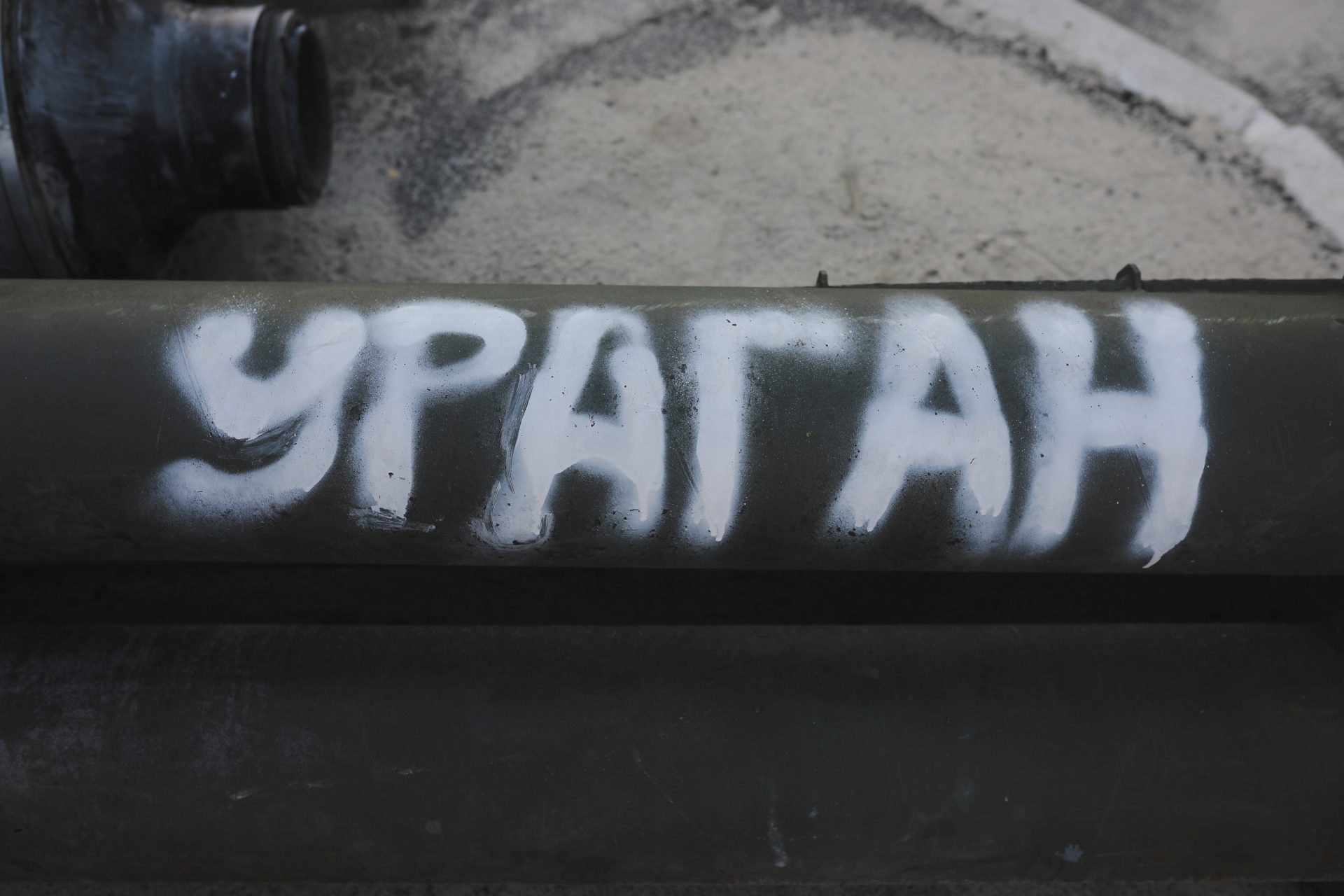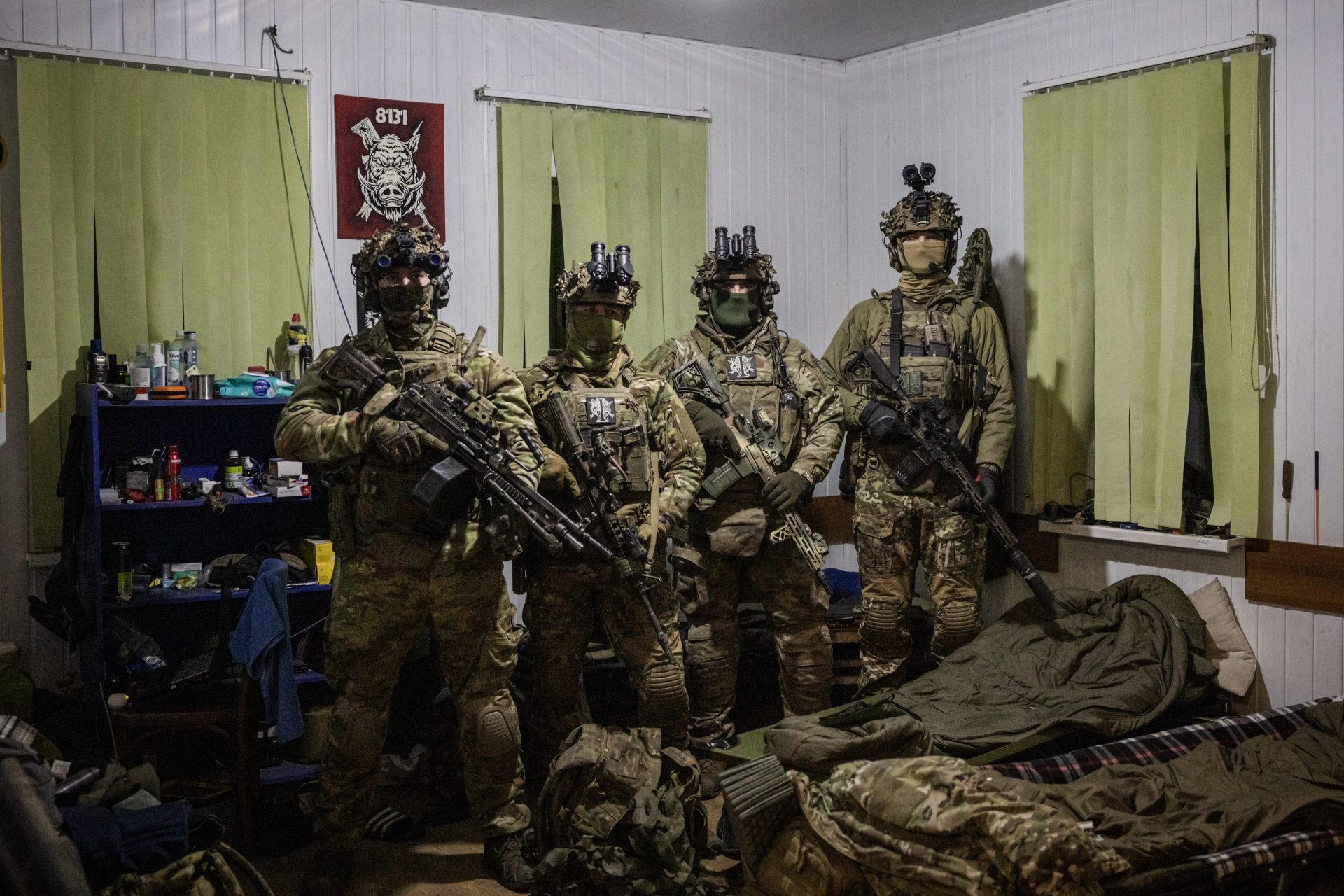Russia forces are being devastated by a game changing weapon
Russian casualties are rising as the Ukrainian military implements a devastating new weapons system in their counter-offensive, one that an ex-advisor to Ukraine's Commander-in-Chief General Valery Zaluzhny says is a game changer for the country's armed forces.
"The last few days have shown DPICMs to be a "game-changer," Daniel Rice, the former adviser to General Zaluzhny," explained according to a Newsweek report.
Photo credit: LinkedIn @danricewestpoint
DPICMs refer to dual-purpose improved conventional munition, which is what the United States calls its artillery cluster munitions, a weapon President Joe Biden recently decided to supply to Ukraine as the nation faced a shortage of artillery ammunition.
Biden decided to send cluster bombs to Ukraine in order to help the embattled country push Russian forces out of the occupied territories. But what made the U.S. send these weapons and why are they so controversial?
Biden called the move a "difficult decision" in an interview with CNN's Fareed Zakaria. But it is a move the Associated Press said his administration has said would important to winning the fight against Moscow and was helped along by a promise by the Ukrainians to use the weapons carefully.
“It was a very difficult decision on my part. And by the way, I discussed this with our allies, I discussed this with our friends up on the Hill,” Biden explained, adding: “The Ukrainians are running out of ammunition.”
Biden explained that the war was one that related to munitions and told Zakaria that Ukraine was running out of ammunition, which is one of the reasons he made the decision to take the Department of Defense's advice and supply the Kyiv with cluster bombs.
The measure was planned as a stopgap according to Biden, one that would presumably allow Ukraine to keep fighting while the U.S. and its allies worked on getting more 155mm artillery shells to the Ukrainians.
“They’re trying to get through those trenches and stop those tanks from rolling. But it was not an easy decision,” Biden said. “We’re not signatories to [UN] agreement, but it took me a while to be convinced to do it.”
American cluster munitions have turned out to be extremely effective according to information from the Ukrainians that was relayed by National Security Council spokesperson John Kirby based on a report from Newsweek. But some weren't happy they were sent to Ukraine.
Several American allies like Canada, Spain, the UK, and New Zealand have voiced their opposition to the move according to the BBC due to the controversial nature of the weapons. But what are cluster bombs and why are they so reviled?
Cluster bombs, or cluster munitions, are a type of weapon that contain a multitude of explosive submunitions which can be launched from the ground, air, or sea in order to coat a large area with several hundred explosives according to the Cluster Munitions Coalition.
The area can be as large as several football fields in size and anyone within the cluster munitions strike zone—whether they be military or civilian—are likely to be killed by the submunition or at the very least seriously injured.
The weapons are so dangerous that as of April 2023, at least 123 countries had signed on to the UN’s 2008 Convention on Cluster Munitions—a treaty that bans the use of cluster munitions that neither Russia, Ukraine, nor the United States is a signatory.
Human Rights Watch noted that since the full-scale invasion of Ukraine began, Russia has used cluster munitions in attacks that have led to thousands of civilian casualties as well as the damage and destruction of civilian hospitals, homes, and schools.
However, while cluster bombs are an extremely dangerous weapon of war they’re also a very effective battlefield tool and would give Ukraine an edge against Russian forces in their fight to push the Kremlin’s armies out of the territory they occupy in the country.
“These would undoubtedly have a significant battlefield impact,” an unnamed American official told CNN in a pre-Biden decision article the news organization published on the changing attitudes in Washington about sending Ukraine cluster munitions.
Changing battlefield conditions in the weeks leading up to the decision to send cluster munitions made U.S. officials reconsider their previous reluctance to supply Ukraine with cluster munitions, a reluctance based on the fear the weapons could pose a serious risk to civilians during and after the war.
In late June, the United States Deputy Assistant Secretary of Defense for Russia, Ukraine, and Eurasia Laura Cooper testified during a Congressional hearing that sending DPICMs would be helpful for Ukraine.
"Our military analysts have confirmed that DPICMs would be useful, especially against dug-in Russian positions on the battlefield," Cooper explained.
"The reason why you have not seen a move forward in providing this capability relates both to the existing congressional restrictions on the provision of DPICMs and concerns about allied unity," Cooper added.
More for you
Top Stories


































